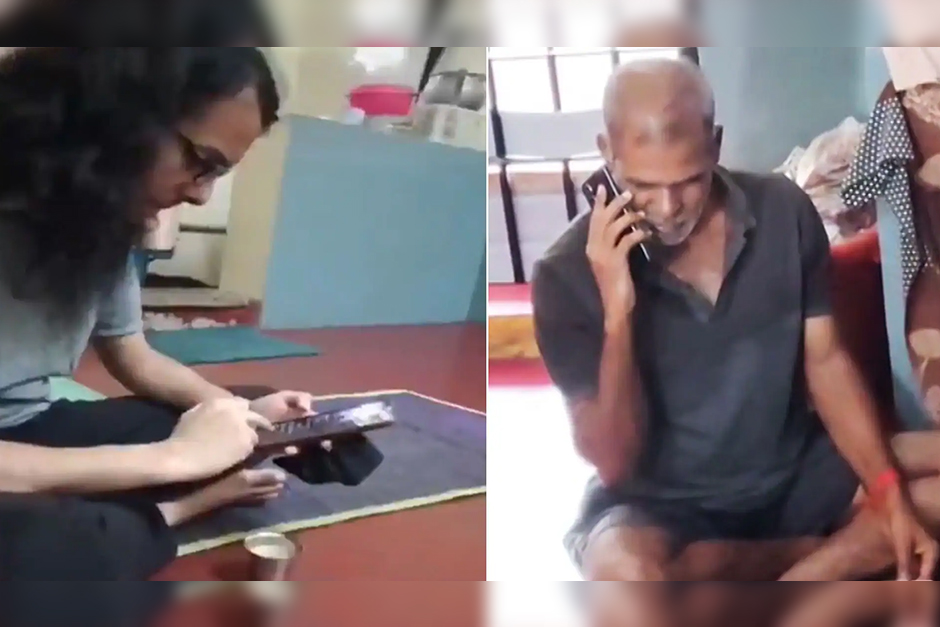A recent viral video has sent shockwaves across India, exposing a glaring breach of security and raising serious questions about the integrity of the nation’s correctional facilities. The footage, reportedly filmed within the confines of Bengaluru’s high-security Parappana Agrahara Central Prison, allegedly depicts an Islamic State (ISIS) operative and a convicted rapist casually using mobile phones. The incident has ignited widespread public outrage and prompted a swift, albeit critical, response from the Karnataka government, which is now grappling with the fallout of this alarming revelation.
The Viral Outcry and Allegations
The controversial video, which began circulating rapidly across social media platforms late last week, shows two inmates in what appears to be a cell or common area. One individual, identified by various reports as a suspected ISIS operative facing serious terror charges, is seen engrossed in a phone conversation. Beside him, another inmate, allegedly a convicted rapist serving a lengthy sentence, is also seen interacting with a mobile device. The casual demeanour of the prisoners, seemingly unconcerned about being recorded or caught, has been a significant point of concern for citizens and security experts alike.
The footage immediately sparked a torrent of criticism, with many questioning how such prohibited items could enter and be openly used within a maximum-security prison. Concerns have been particularly acute regarding the ISIS operative, whose ability to communicate externally poses a significant national security risk, potentially allowing him to coordinate activities, spread propaganda, or even plan escapes. For the rapist, the access to a phone raises fears of potential intimidation of victims or witnesses, or involvement in further criminal activities from behind bars. The public outcry has rightly demanded accountability from prison authorities and a comprehensive overhaul of security protocols that appear to have been severely compromised.
Government’s Swift Response and Measures
Reacting to the escalating controversy, the Karnataka government has moved quickly to address the serious allegations. Home Minister G. Parameshwara promptly acknowledged the gravity of the situation, assuring the public of stringent action. An immediate high-level inquiry was ordered, led by senior officials, to investigate the origins of the video, identify the inmates involved, and ascertain how mobile phones gained entry into the prison premises. Within hours of the video going viral, several prison officials, including the Superintendent and Deputy Superintendent of Parappana Agrahara jail, were either suspended or transferred pending investigation, indicating the seriousness with which the government is treating the breach.
In response to the outrage, the state government has also announced a series of corrective measures aimed at tightening prison security. These include enhanced frisking of visitors and staff, more frequent and thorough cell searches, and the installation of advanced CCTV cameras and signal jammers across the prison complex to prevent the illicit use of mobile phones. Additionally, there are talks of implementing stricter protocols for staff, including regular rotations and mandatory background checks, to curb potential complicity. “We understand the public’s concern and share their outrage. This incident is unacceptable and a clear lapse. We are committed to not only punishing those responsible but also implementing robust, long-term solutions to prevent such occurrences in the future,” stated a senior official from the Karnataka Prisons Department, underscoring the government’s resolve.
Persistent Challenges in Prison Management
While the immediate response from the Karnataka government is commendable, the viral video highlights deeply entrenched systemic issues within India’s prison system. The problem of contraband, particularly mobile phones and drugs, making its way into correctional facilities is not new and has been a recurring concern across various states. Factors contributing to this persistent challenge include chronic overcrowding, which makes effective surveillance difficult; severe understaffing of prison guards, leading to overstretched personnel; and, regrettably, instances of corruption among prison officials who may facilitate the entry of illegal items for monetary gain.
The incident at Parappana Agrahara serves as a stark reminder of the urgent need for comprehensive prison reforms. Beyond immediate disciplinary actions, there is a crucial need for technological upgrades, including advanced scanning equipment and biometric systems for staff and visitor identification. Furthermore, regular training for prison staff on modern security protocols, coupled with enhanced accountability mechanisms, is vital. The integrity of the justice system and national security hinges on the effective and secure containment of dangerous individuals. The Bengaluru jail video underscores that failures in prison management can have far-reaching and dangerous consequences, demanding sustained attention and investment from policymakers.
The viral video from Bengaluru’s Parappana Agrahara jail is more than just a fleeting sensation; it’s a critical wake-up call. It has exposed severe vulnerabilities in prison security, raising profound questions about the handling of high-profile and dangerous inmates. As the Karnataka government initiates its investigations and implements corrective measures, the long-term challenge lies in addressing the root causes of these breaches. Only through sustained commitment to reform, transparency, and accountability can public trust be restored and the security of correctional facilities be genuinely assured.




